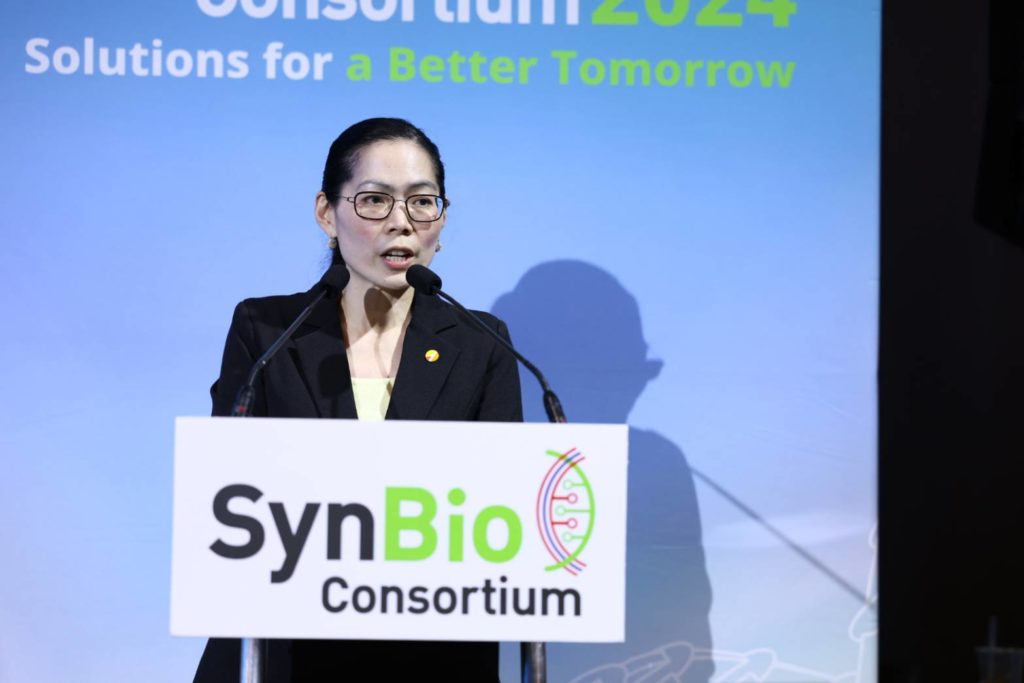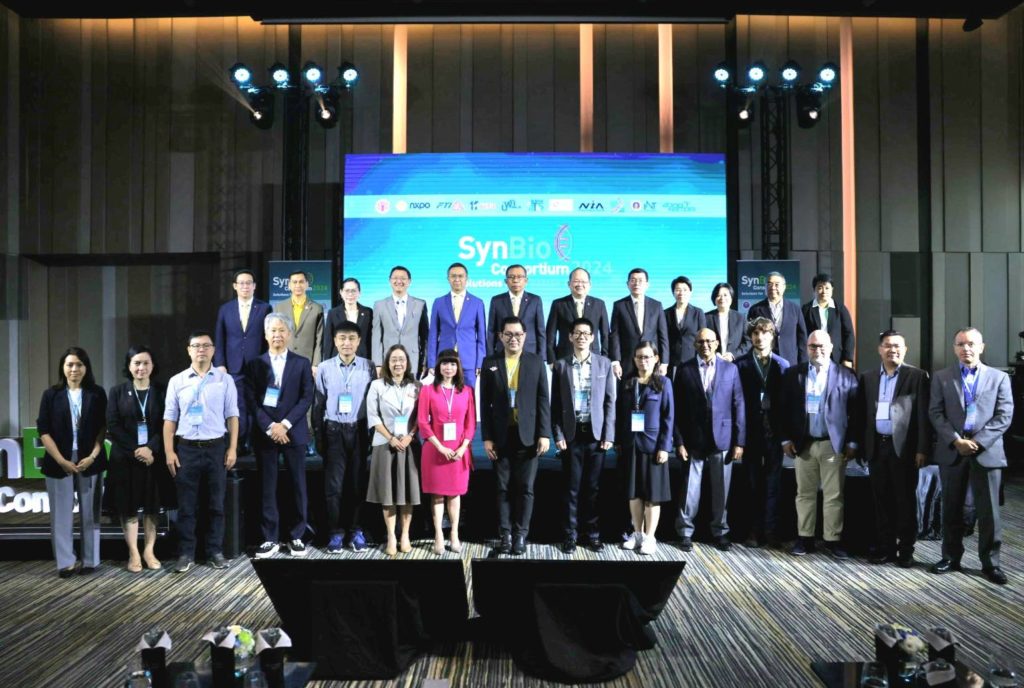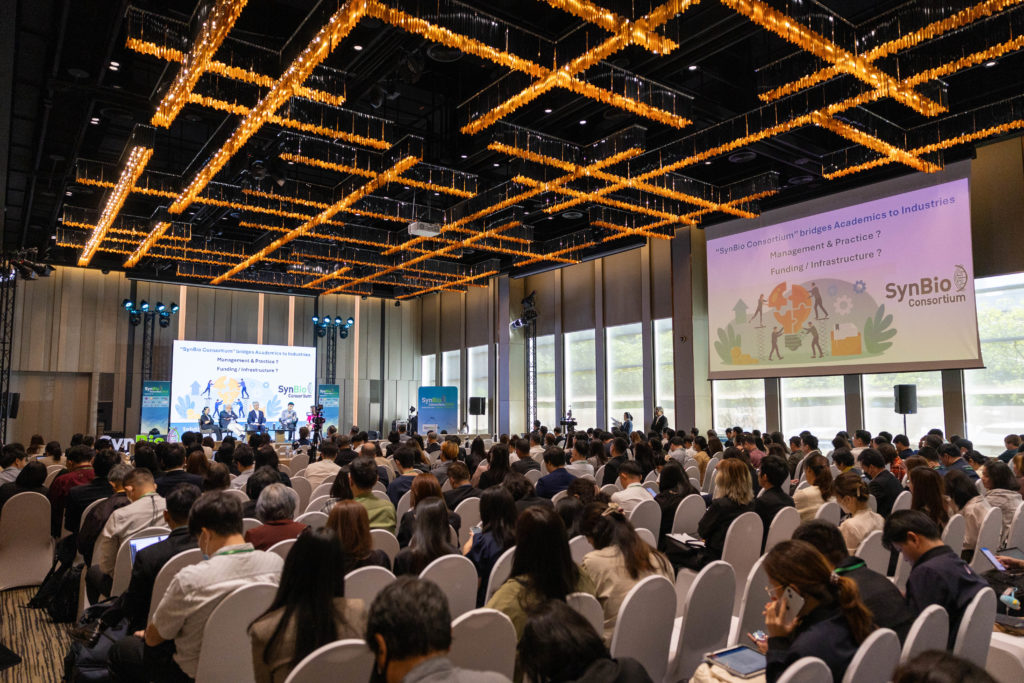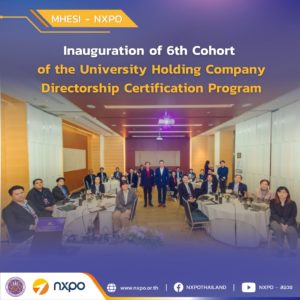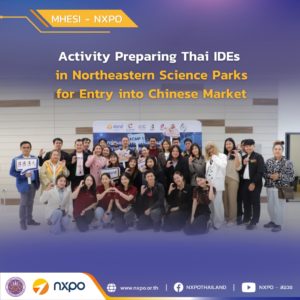On November 11, 2024, the National Higher Education, Science, Research and Innovation Policy Council (NXPO) under the Ministry of Higher Education, Science, Research and Innovation (MHESI), in collaboration with Thailand Science Research and Innovation (TSRI), Program Management Unit for Competitiveness (PMU-C), Program Management Unit for Human Resources & Institutional Development Research and Innovation (PMU-B), National Innovation Agency (NIA), National Science and Technology Development Agency (NSTDA), the Federation of Thai Industries (FTI), Mahidol University, and the Thai Academy of Science and Technology (TAST), hosted the International Synthetic Biology Conference in Thailand 2024 or SynBio Consortium 2024 at Eternity Ballroom, Pullman Bangkok King Power Hotel, Thailand. This event gathered leading experts, researchers, and innovators from around the world to discuss the possibilities of synthetic biology, share experiences, promote collaboration, and exchange knowledge to address global challenges such as healthcare innovation, sustainable agriculture, and clean energy.
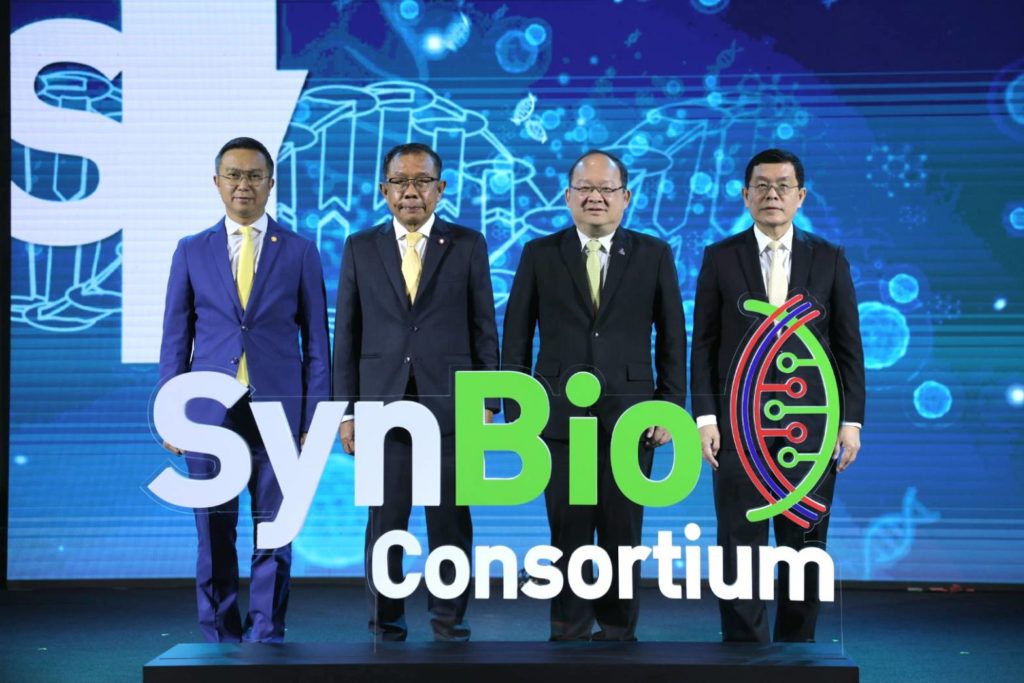
The event was officially opened by Mr. Supachai Jaisamut, Vice Minister of MHESI, who emphasized the government’s commitment to promote the SynBio Development Roadmap. Mr. Supachai highlighted the government’s determination to drive this roadmap to success, particularly in creating an ecosystem conducive to development. The plans under this roadmap will lead to the creation of an ecosystem that supports the industrial application of synthetic biology, which will stimulate the economy, enhance health support, and significantly contribute to environmental sustainability.

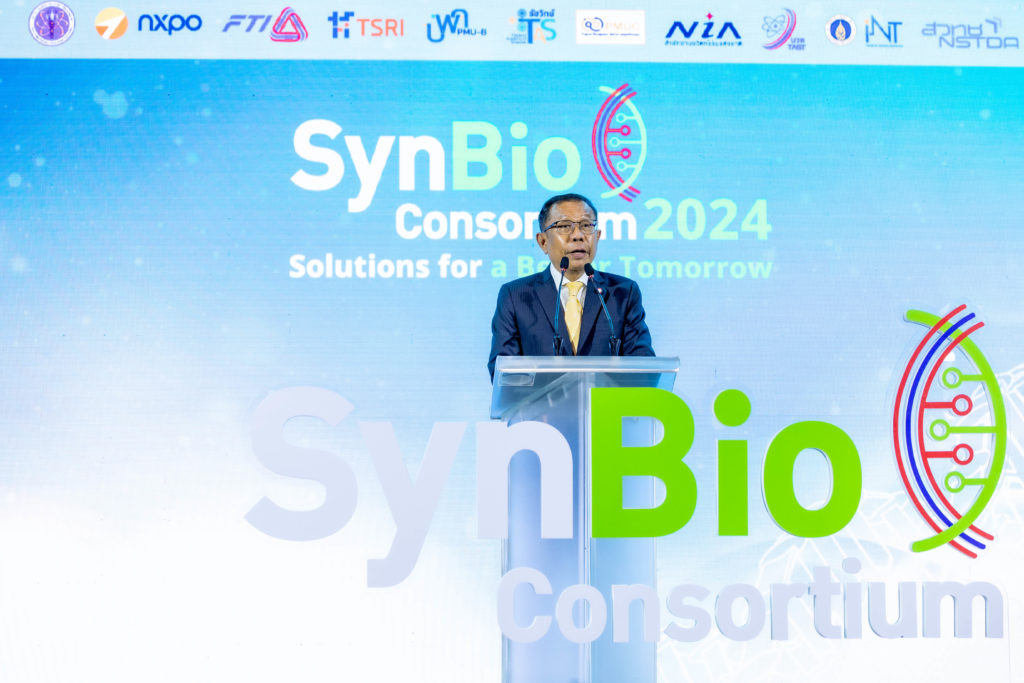
Dr.Surachai Sathitkunarat, President of NXPO, welcomed attendees and provided information about the SynBio Development Roadmap, noting that this roadmap is not just a plan, but a commitment to applying scientific knowledge for societal benefit. By partnering with global allies and leveraging Thailand’s strengths, we believe we can create a strong ecosystem to support the application of synthetic biology across various industries.
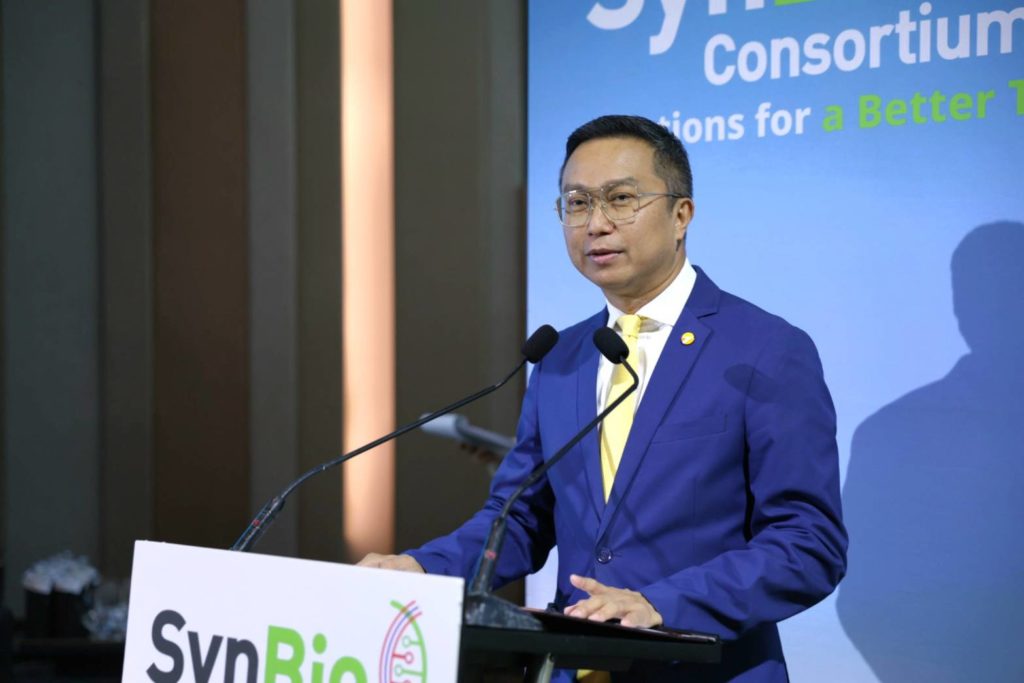
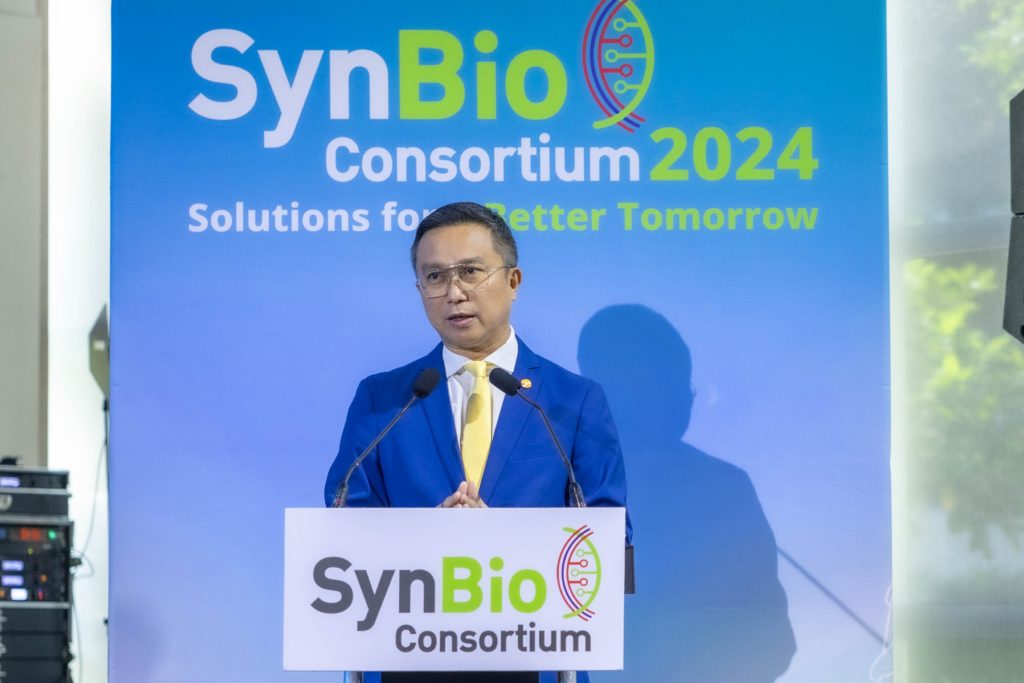
Mr.Kriengkrai Thiennukul, chairman of the Federation of Thai Industries (FTI), shared the private sector’s vision on developing industries based on the application of synthetic biology.
He views it as a crucial technology that can transform Thailand’s competitive capabilities. It will help reduce costs, increase productivity, and enhance efficiency. The Federation of Thai Industries (FTI) has partnered with the government agencies, academic institutions, and the industrial sector to drive the development of synthetic biology technology and its industrial applications, leveraging Thailand’s biodiversity as a national strength to achieve sustainability in economic, social, and environmental aspects. This will help guide the country towards a low-carbon society.
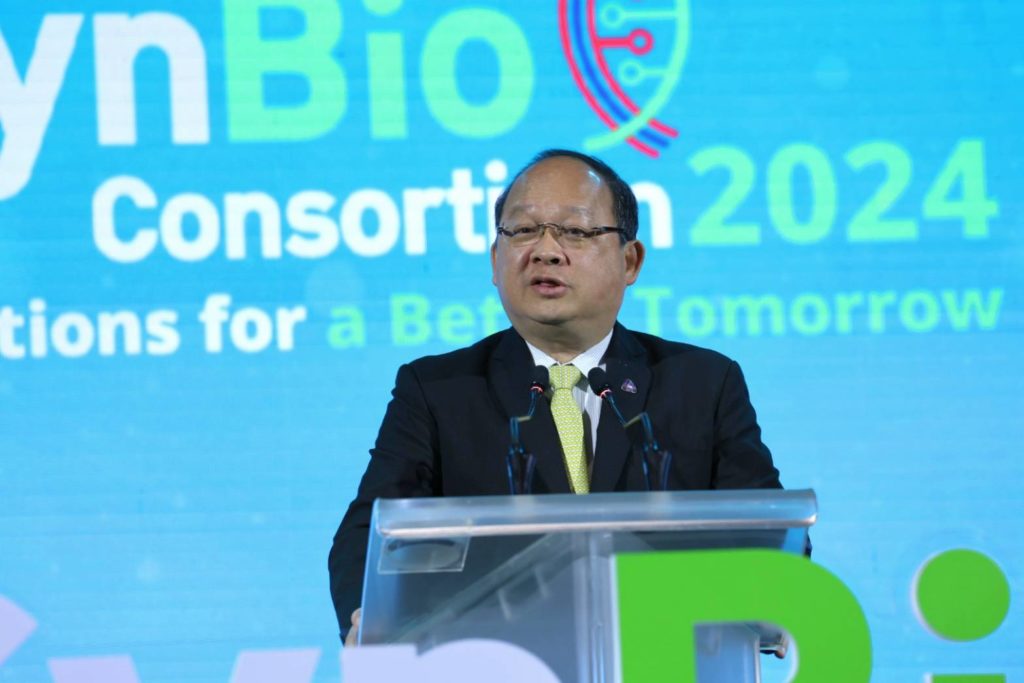
Mr.Kittipong Limsuwannarot ,executive board of the Federation of Thai Industries (FTI), reported on SynBio Consortium, founded in 2022 with a clear vision: synthetic biology creates new economic opportunities, driving Thailand towards sustainable development based on the Bio-Circular-Green (BCG) economic model. The Federation of Thai Industries (FTI) is one of the key partners in a network supporting the research and development of synthetic biology technologies for commercialization through providing recommendations, advocating, and driving forward policies related to regulations, measures, and mechanisms that facilitate the development of an ecosystem supporting the economy and industries based on synthetic biology and related technologies. The cooperation within this network is expected to generate significant positive impacts and position Thailand as a global leader in synthetic biology in a sustainable way.
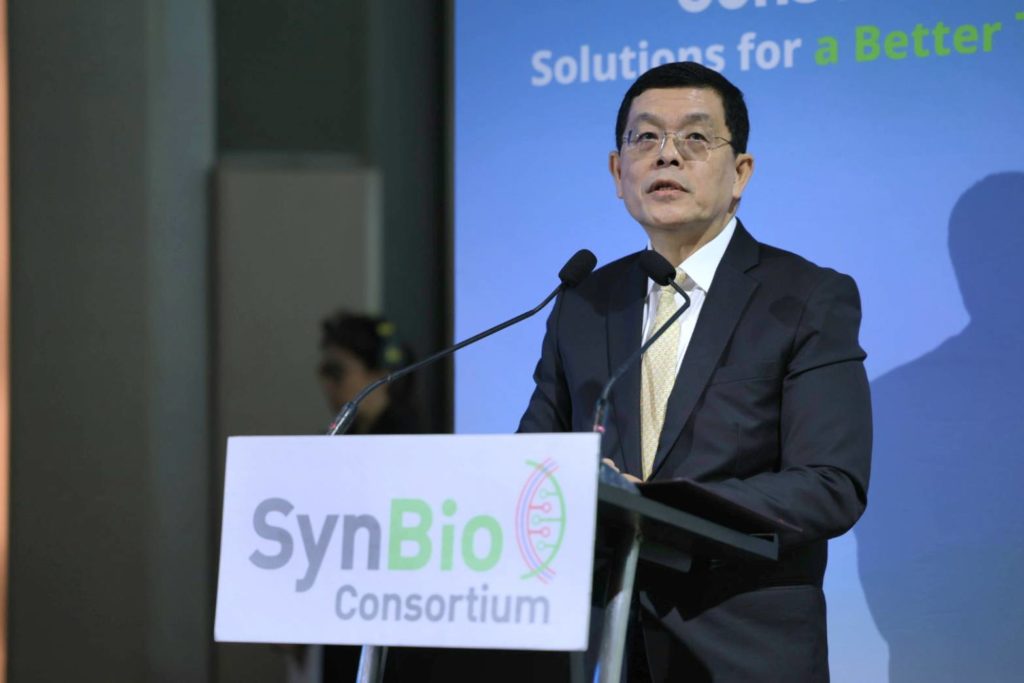
Dr.Siriporn Pittayasophon, Senior Strategist Acting as Vice President of of NXPO, delivered the closing remarks and extended her gratitude to the panelists, organizers, and all participants for their contributions in providing Thailand with valuable information. She also thanked the event sponsors, including various agencies under the Ministry of Higher Education, Science, Research and Innovation, and the Federation of Thai Industries, for their significant role in making the event a success. The insights and discussions from this event, particularly regarding the SynBio Development Roadmap, will be forwarded to relevant agencies for further action. We believe these efforts will help drive the growth and advancement of synthetic biology.
The conference included discussions on five topics: 1. Challenges and Regulations for Genome Editing in Plant Organisms, exchanging relevant regulatory frameworks, especially Thailand’s new regulations. It featured examples from GEd technology businesses in the USA and Israel to provide an international perspective and included updates on GEd research in Thailand to address existing challenges. Additionally, insights were shared to promote the improvement of Thailand’s GEd framework. 2. How to Manage R&D Consortium: Pushing
Research Boundaries Towards Industry, showcasing recommendations, challenges, and strategies to promote SynBio research from the lab to market, the role of accelerators, and regional progress. It also discussed the pros and cons of cooperation between academia and industry and deliberated on ways for policymakers and government agencies to improve infrastructure and funding to align with industry needs. 3. Responsible Research Innovation in Synthetic Biology Research and Utilization, focusing on responsible research innovation with an emphasis on ethics and social responsibility, featuring case studies to highlight ethical issues in past biotechnology applications and anticipate the significant impacts synthetic biology may have in the future. 4. The Importance of Technical Standard in Synthetic Biology, focusing on the role of standards in advancing the field by addressing challenges in handling information in life sciences and biotechnology, emphasizing collaboration between scientists and policymakers, and discussing relevant standards while participants considered ways to standardize biological information to benefit research. 5. Regional Infrastructure & Talent Landscape for Industrial Scaleup, examining essential infrastructure and workforce development to support synthetic biology research and development. Presentations on the Eastern Economic Corridor of Innovation (EECi) and the Synthetic Biology Landscape study emphasized the field’s status and potential in the country, and showcased Scaleup Bio’s success in Singapore as an example of scaling biotechnology innovation, alongside BBGI and Fermbox Bio’s collaboration as an example of industry partnership.
Speakers and participants offered valuable perspectives for future advancements in synthetic biology, providing an excellent opportunity to exchange ideas with leading experts and build collaborations to drive the application of synthetic biology in Thailand.
